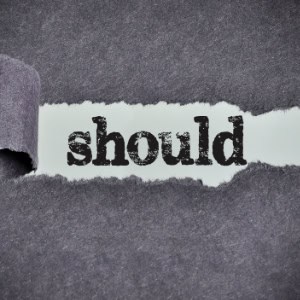They Should … (WT766)
BlogThis week I was teaching the concept of Values Collisions, from Thomas Gordon’s Leader Effectiveness Training.
I thought I’d share it with you too.
A values collision is a conflict in which the values of two parties clash, but there is no tangible effect.
There are many many opportunities for Values Collisions in the workplace and at home.
For example, say you vape and I don’t.
Unless I’m in the room with you, you vaping doesn’t affect me.
When it comes to values, we won’t generally change our values just because someone says we should.
For example, if I was to say, “Vaping is really harmful to your body and you should stop”, it would most likely be met with resistance.
So how do we identify Values Collisions and more importantly what can we do to resolve them?
It’s easy to identify them.
If you hear yourself say, “They Should” or “They shouldn’t”, it’s an indication of a judgement and if it is a judgement, first look to see if there really is a tangible effect on you, if not, it’s a Values Collision.
In order to deal with the Values Collision, you can choose from 9 options, however they all come with varying degrees of risk to the relationship.
Here are the 9, from highest risk to lowest risk:
- Power (using your power to make the other person change)
- False Acceptance (pretending you accept their value)
- Problem Solving the behaviour associated with the value (e.g. not vaping when I am around)
- Consulting (sharing information and leaving the decision to change with the other)
- Disclosing and listening (truly listening for understanding of the other’s value)
- Preventative Teaching (explaining policies at induction)
- Modelling (walking your talk)
- Changing Self (to align with the other’s value)
- True Acceptance (of the other’s value)
Your choice of option may depend on the value, the other person or the situation.
Remember, if you find yourself judging, it’s a good litmus test for a potential Values Collision.
If so, ask yourself:
- What is my value?
- Where did it come from?
- Why do I want to keep it?
And if all else fails, revert to the Serenity poem.
P.S. Invite your friends to get the Weekly Thought delivered directly to their inbox.







